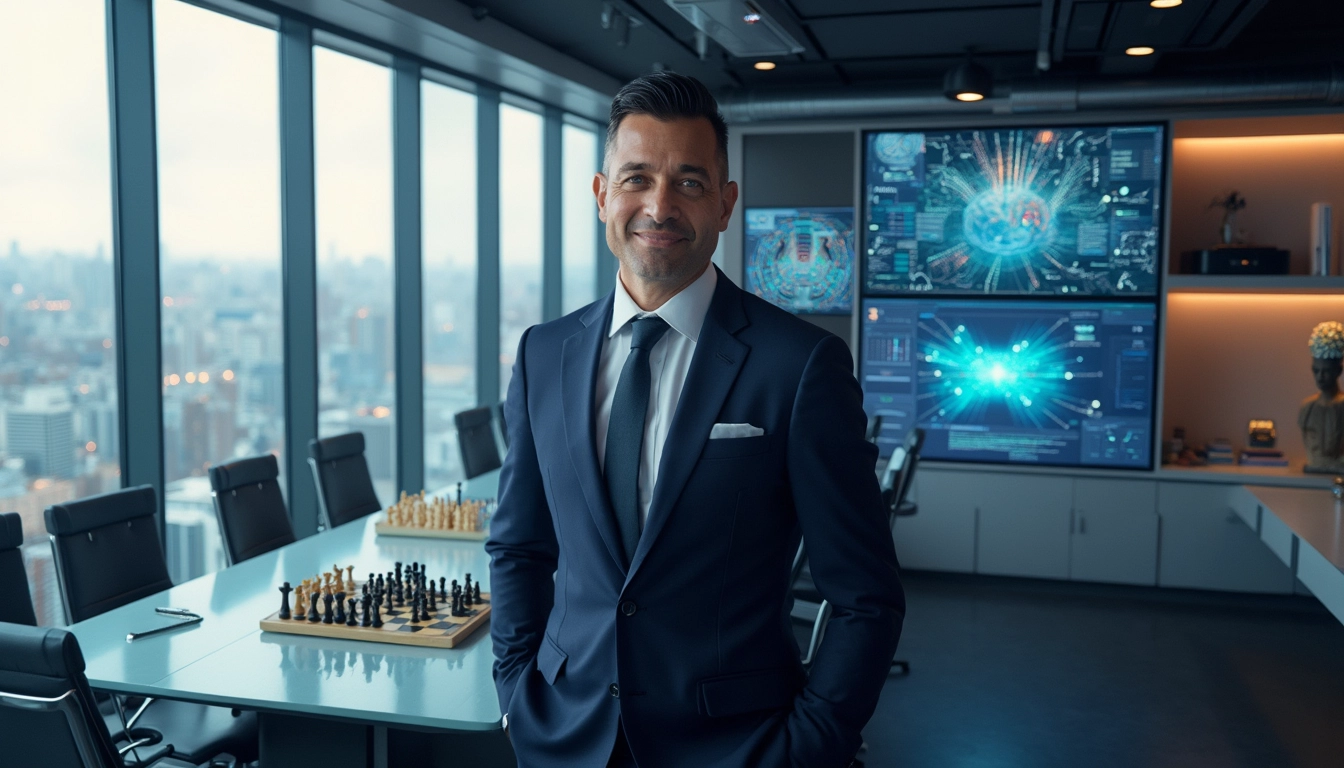
From Chess Prodigy to AI Pioneer: Demis Hassabis Journey Revolutionizes Technology
Demis Hassabis, a remarkable child chess prodigy turned AI pioneer, has shaped the landscape of artificial intelligence through groundbreaking innovations at DeepMind. His journey from mastering chess at age 4 to revolutionizing protein structure prediction with AlphaFold exemplifies the intersection of human intelligence and machine learning capability.
Table of Contents
Key Takeaways:
- Started as a chess prodigy and designed the multi-million selling game Theme Park at just 17
- Founded DeepMind in 2010, leading to revolutionary AI breakthroughs including AlphaGo and AlphaFold
- Earned a Double First in Computer Science from Cambridge and a PhD in cognitive neuroscience from UCL
- Received prestigious recognitions including CBE and Fellowship of the Royal Society
- Pioneered the fusion of neuroscience and artificial intelligence research methodologies
Early Life and Academic Excellence
Demis Hassabis displayed exceptional intellectual capabilities from an early age, becoming a chess master by age 13. His passion for game development emerged during his teenage years, leading to the creation of Theme Park at age 17. After completing his education at Cambridge with distinction, Hassabis established himself as a pioneering force in gaming through artificial intelligence and gaming innovation.
The DeepMind Revolution
In 2010, Hassabis founded DeepMind with a clear vision: to develop artificial general intelligence (AGI) that could solve complex problems. The company’s breakthrough came with AlphaGo, demonstrating unprecedented machine learning capabilities by defeating the world champion Go player. This achievement marked a significant milestone in AI’s advancement toward human-like reasoning.

Scientific Breakthroughs and Innovation
Under Hassabis’ leadership, DeepMind has achieved remarkable success in various scientific domains. The development of AlphaFold represents a revolutionary breakthrough in protein structure prediction, significantly advancing biological research. Looking to streamline your research and innovation process? Consider exploring automation solutions to enhance your workflow efficiency.
Impact on Global Challenges
Hassabis’ work extends beyond pure AI research, tackling pressing global issues through technological innovation and ethical considerations. His contributions to climate change modeling and nuclear fusion research demonstrate the practical applications of AI in solving real-world problems.
Recognition and Future Vision
The impact of Hassabis’ work has earned him numerous accolades, including being named on the Time 100 list and receiving a CBE. His commitment to developing safe and ethical AI systems continues to shape the future of artificial intelligence, ensuring that technological advancement benefits humanity while addressing potential challenges in job markets and society.


